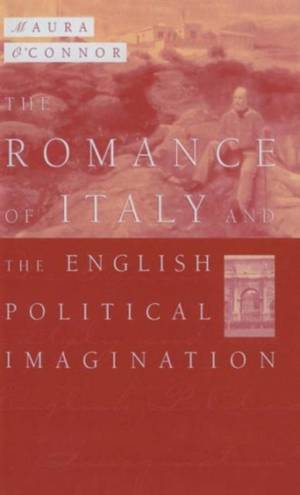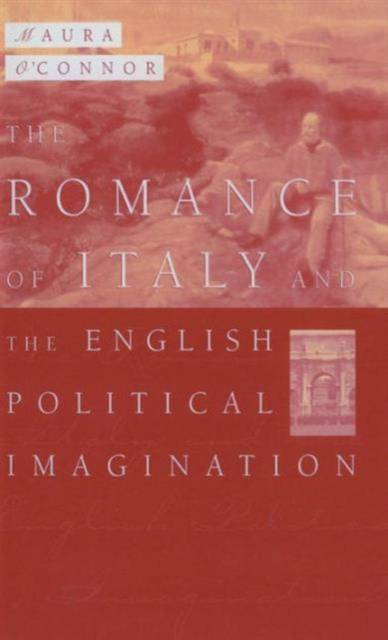
Je cadeautjes zeker op tijd in huis hebben voor de feestdagen? Kom langs in onze winkels en vind het perfecte geschenk!
- Afhalen na 1 uur in een winkel met voorraad
- Gratis thuislevering in België vanaf € 30
- Ruim aanbod met 7 miljoen producten
Je cadeautjes zeker op tijd in huis hebben voor de feestdagen? Kom langs in onze winkels en vind het perfecte geschenk!
- Afhalen na 1 uur in een winkel met voorraad
- Gratis thuislevering in België vanaf € 30
- Ruim aanbod met 7 miljoen producten
Zoeken
The Romance of Italy and the English Imagination
Italy, the English Middle Class and Imaging the Nation in the Nineteenth Century
Maura O'Connor
Hardcover | Engels
€ 213,95
+ 427 punten
Omschrijving
In blurring the boundaries between fact and fiction, diplomats and travellers, English nation and Italian nation, Maura O'Connor shows us the extent to which imagination, pleasure and politics were intimately interwoven in her story of the English middle-class fascination with the Italian peninsula from the early 1800s through to the 1860s. O'Connor uses a variety of sources, ranging from travel writings and the popular press to diplomatic dispatches and official correspondence, to illustrate how influential the romance of Italy was to the bourgeois, liberal, and above all English social order during a time when class society was undergoing reconfiguration. Her use of the collective imagination as a crucial historical tool, and her emphasis on narrative as a means not only to read texts but also to understand political sources such as diplomatic documents as reflections of culture, ensures that this book breaks new ground and defies conventional categorization. Also included are the unique assertions that the concepts of Englishness and 'England' were conceived in anything but isolation, and that neither high politics nor foreign policy may be viewed as domains separate from the forces of cultural imagination and production.
Specificaties
Betrokkenen
- Auteur(s):
- Uitgeverij:
Inhoud
- Aantal bladzijden:
- 246
- Taal:
- Engels
Eigenschappen
- Productcode (EAN):
- 9780312210861
- Verschijningsdatum:
- 14/10/1998
- Uitvoering:
- Hardcover
- Formaat:
- Genaaid
- Afmetingen:
- 146 mm x 218 mm
- Gewicht:
- 494 g

Alleen bij Standaard Boekhandel
+ 427 punten op je klantenkaart van Standaard Boekhandel
Beoordelingen
We publiceren alleen reviews die voldoen aan de voorwaarden voor reviews. Bekijk onze voorwaarden voor reviews.









